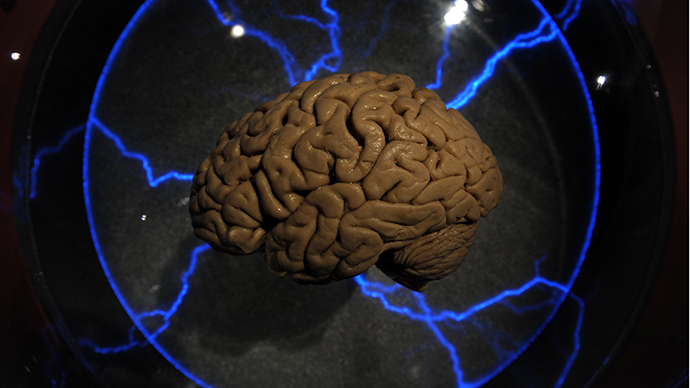Size does matter: Scientists discover gene linking gray matter to intelligence

Scientists have found a gene that links thickness of the brain’s gray matter and intelligence. The find could open the door to understanding why some people have learning problems – and even give an insight into psychiatric disorders.
Researchers at King’s College London have discovered a gene that draws a link between the thickness of gray matter in the brain and a person’s level of intelligence. The findings of the research were published in the scientific journal Molecular Psychiatry on Tuesday.
The gray matter itself plays an important role in perceptual awareness, language and consciousness. Prior to this study, scientists had already found a correlation between the thickness of gray matter and an individual’s intelligence, but no genes had been discovered.
The scientists examined brain scans from over 1,500 14-year-olds, looking closely at the outermost layer of the brain, the cerebral cortex. They also took samples of participants’ DNA and then tested their levels of verbal and non-verbal intelligence.
“We wanted to find out how structural differences in the brain relate to differences in the intellectual ability,” said Sylvane Desrivieres, lead author of the study. “The genetic variation we identified is linked to synaptic plasticity – how neurons communicate.”
After looking at over 54,000 genetic variations associated with the make-up of the brain, they discovered that participants carrying a particular gene were more likely to have a thinner cortex in the left cerebral hemisphere. These participants did not perform as well in the intellectual tests as those who had thicker cerebral cortexes.
The scientists identified the gene encoding a protein that affects how brain cells communicate as the NPTN gene. Researchers confirmed the gene’s effect by testing it on a mouse and human brain cells in the lab, where they observed different levels of activity in the left and right hemispheres of the brain.
Desrivieres said that the research did not amount to a discovery of “a gene for intelligence.”
“The gene we identified only explains a tiny proportion of the differences in intellectual ability," she said.
The new discoveries will be invaluable, however, in understanding the biology that leads to psychiatric disorders such as schizophrenia and autism.
"This may help us understand what happens at a neuronal level in certain forms of intellectual impairments, where the ability of the neurons to communicate effectively is somehow compromised,” Desrivieres said.














